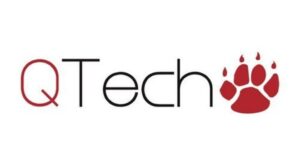Key Moments:
- The Financial Action Task Force (FATF) identified online gambling and digital assets as increasing channels for illicit money transfers in its 2025 report.
- Record AML fines have been reported in the UK, Australia, and Macau, indicating stricter regulatory scrutiny on the iGaming industry.
- The European Union has introduced unified AML oversight through its directives and the new Anti-Money Laundering Authority (AMLA).
Increasing Pressure on Global iGaming Compliance
The digitalization of iGaming has brought online transactions to the forefront of industry operations, intensifying the need for robust Anti-Money Laundering (AML) strategies. Operators across Europe and Asia are contending with one of their most intricate challenges for 2025: navigating vastly different regulatory environments, each with its own compliance requirements, reporting structures, and supervisory frameworks.
Regulatory Approaches: Standardization versus Fragmentation
Disjointed enforcement and the lack of harmonized systems have amplified the risks involved in cross-border operations. The FATF has underscored the growing vulnerability within the online gambling sector and among digital asset platforms, calling attention to inadequate licensing regimes and missing implementation of critical standards like the Travel Rule. Such gaps have rendered certain jurisdictions attractive for those seeking to exploit AML weaknesses.
In contrast, the European Union is driving efforts toward regulatory cohesion through its series of Anti-Money Laundering Directives (AMLDs) and the newly established AMLA. This coordinated approach aims to build a regional framework that could become a benchmark for other regulatory bodies around the world.
Industry Leaders Emphasize the Value of Aligned Standards
The Association of Certified Gaming Compliance Specialists (ACGCS) has released a report warning that the proliferation of unique, jurisdiction-specific requirements in iGaming has increased operational complexity and the risk of regulatory penalties. Recent spikes in AML fines, particularly in the UK, Australia, and Macau, underscore a heightened focus on compliance throughout the sector.
Sona Kirakosyan, Head of Technical Monitoring and Compliance at TotoGaming, commented to SiGMA News that “Harmonisation of Anti-Money Laundering standards greatly enhances efficiency and reduces regulatory risk for cross-border gaming operators.” She further explained, “A centralised AML system reduces duplication, lowers compliance costs, and mitigates the risk of breaches.”
Asia’s Continued Regulatory Fragmentation
Despite the EU’s progress, many Asian markets remain disjointed in their regulatory approaches. Kirakosyan noted, “This increases complexity, costs, and exposure to non-compliance. Harmonised procedures allow operators to manage multiple jurisdictions through a single platform, ensuring consistent compliance, faster detection of suspicious activity, and more efficient cross-border operations.”
Her remarks resonate within the broader compliance community, where many advocate for the adoption of technological solutions and consistent standards to strengthen trust and efficiency between market participants and regulators.
Digital Wallets and Cryptocurrencies: A New Layer of AML Risk
The adoption of digital wallets and cryptocurrencies has introduced novel challenges for AML compliance teams. Thanks to speed, anonymity, and borderless features, these tools make it more complex for operators to verify customer identities and monitor potentially illicit activity.
Kirakosyan emphasized the need for “setting transaction limits, both one-time and cumulative, that act as triggers for enhanced KYC and risk-based customer profiling, including verification of identity and source of funds. Automated transaction monitoring, supported by AI and analytics, helps detect unusual patterns such as rapid transfers, structuring, or attempts to obscure transaction sources.”
While regulators have begun to require greater information-sharing through measures like the Travel Rule, guidance still varies widely, adding uncertainty for both operators and payments firms.
The Road Ahead: Toward a Unified Global AML Standard?
With international regulators increasingly prioritizing tighter supervision and collaboration, many in the iGaming industry see harmonized AML standards as a crucial step to simplify compliance, safeguard players, reduce business risk, and foster greater trust between operators and authorities.
As the sector approaches 2026, the central issue remains whether regulatory bodies will move quickly enough to establish effective, unified AML frameworks before compliance burdens become unsustainable.
| Region | Regulatory Approach | Recent Developments |
|---|---|---|
| European Union | Standardized frameworks (AMLDs, AMLA) | Progress toward unified oversight |
| Asia | Fragmented regulation | Ongoing complexity and higher compliance risk |
| Global | Variable enforcement | FATF highlights rising risks; record fines reported |
- Author


